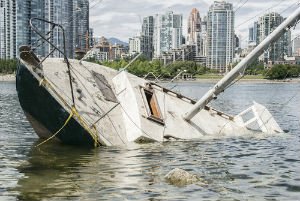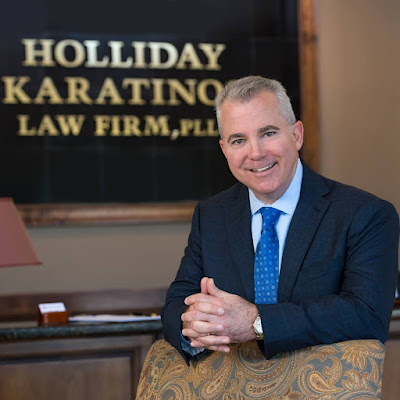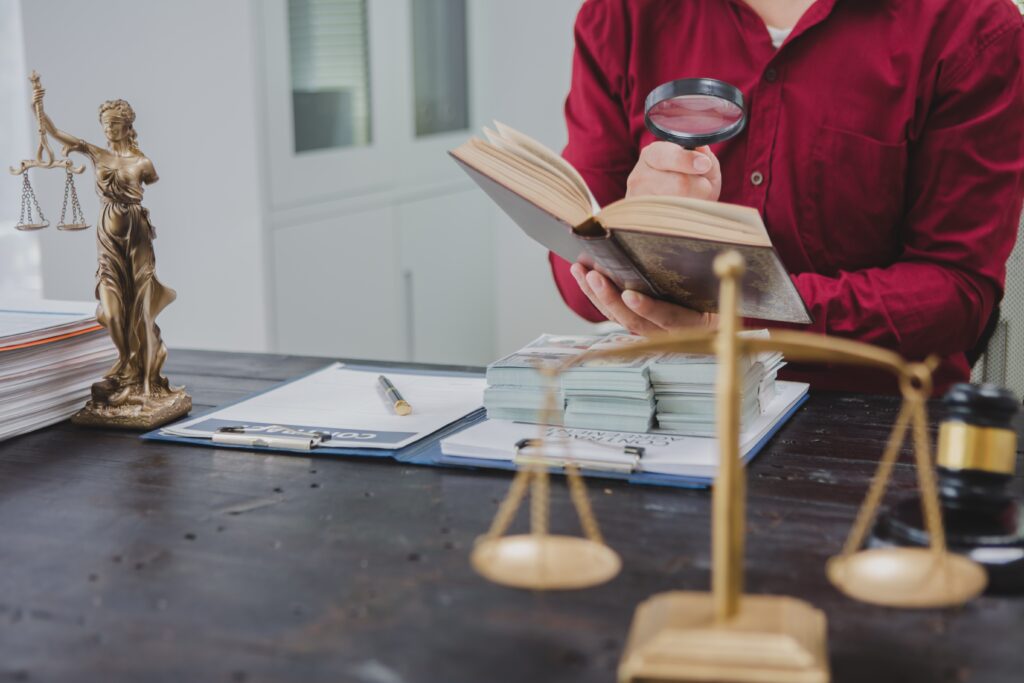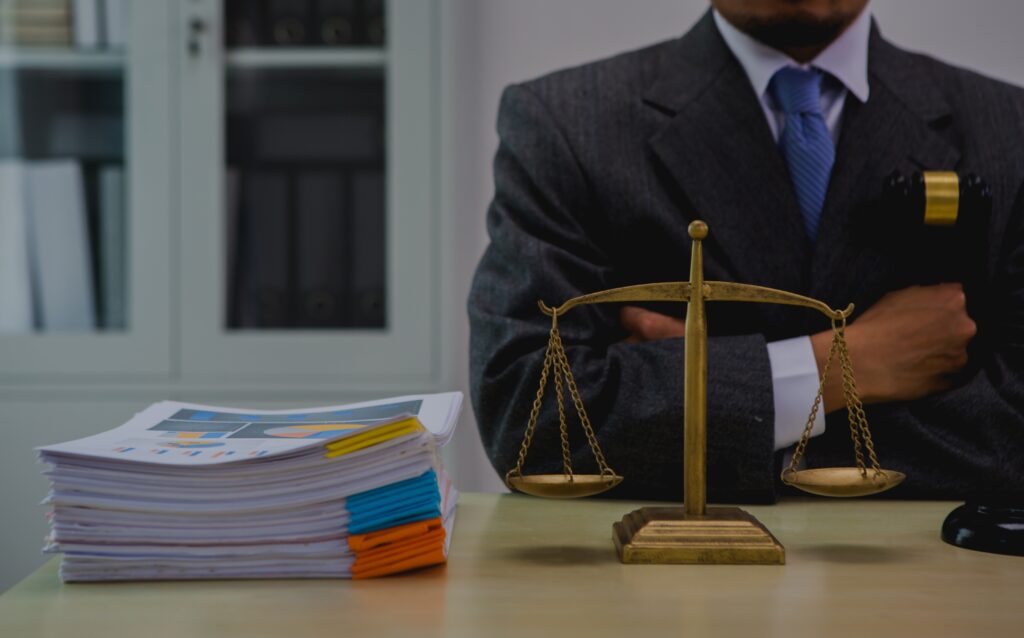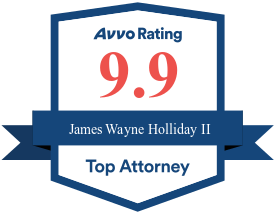A serious boating accident in Inverness leaves you facing a legal process that works nothing like a typical car crash claim. Whether the incident happened on the Tsala Apopka Lake chain, the Withlacoochee River, or another local waterway, your case will likely fall under a unique mix of Florida law and federal maritime rules.
That difference matters. It changes what counts as proof, who can be held responsible, and it changes how the insurance companies handle your claim.
At Holliday Karatinos Law Firm, we’ve worked with many Inverness residents facing this exact situation. You’re suddenly trying to make sense of complex legal terms, multiple parties, and unfamiliar deadlines—all while trying to recovery from your injuries.
You don’t need to figure it out on your own. If you’re unsure what to do next, call us. We’ll walk through your options in a free, pressure-free conversation at (352) 597-0009.
Key Takeaways for Inverness Boating Accident Claims
- Boating claims follow different laws than car accidents. Your case is governed by a distinct set of state and federal maritime rules, which changes how fault is proven and what evidence is required to build a strong claim.
- Operator inexperience is a leading factor in accidents. In one recent year, a staggering 83% of fatal boating accidents in Florida involved operators with no formal boater education, making it a key element in proving negligence.
- Multiple parties could be liable for your injuries. Beyond the person driving the boat, liability could extend to the boat's owner, a rental company that failed to maintain it, or even the manufacturer if a defect contributed to the accident.
Why Choose Holliday Karatinos Law Firm?
When you are healing from an injury, you need a legal team that not only understands the law but also understands your community. Our practice is built on helping injured people in Inverness, Brooksville, and throughout Citrus, Hernando, and Pasco counties. We are your neighbors, not a firm in a distant city. Our office is right here at 111 W Main St, Suite 304 in Inverness.
With over five decades of combined experience, our attorneys have handled a broad spectrum of personal injury claims, including those originating on the water. We provide the dedicated, personal attention of a local firm backed by the financial resources to build a formidable case. Our history of recovering over $125 million for our clients demonstrates our commitment to securing the maximum compensation available.
We work on a contingency fee basis. This means you pay no upfront costs or monthly retainers; we only receive a fee if (and only if) we successfully recover compensation for you.
- Personalized Attention: We believe in direct and honest communication, treating every client with the respect they deserve throughout the entire process.
- No Win, No Fee Guarantee: You face no financial risk when you partner with us.
- Free Case Review: Your first conversation with us is always free, so you can understand your options without any pressure or obligation.
How Is Compensation Determined in a Florida Boating Accident?
Many people, and the insurance companies they deal with, overlook significant, less-obvious losses. How do you quantify the daily pain you experience or the loss of enjoyment from no longer being able to go fishing or spend a day on the water with family? Without a complete accounting, you might accept an offer that falls far short of what you need for the future.
Our job is to identify and pursue every category of compensation you are entitled to under Florida law. These damages fall into two main categories:
- Economic Damages: These are the direct, calculable financial losses.
- Medical Expenses: All costs from the emergency response, hospital stays, surgeries, physical therapy, medications, and any future care you may require.
- Lost Wages: The income you have lost while out of work.
- Loss of Earning Capacity: If your injuries prevent you from returning to your former career, this compensates for the projected difference in your lifetime earnings.
- Property Damage: The funds needed to repair or replace your boat and any other personal items destroyed.
- Non-Economic Damages: These compensate for the personal, non-financial losses that have rewritten your life.
- Pain and Suffering: For the physical pain and emotional distress resulting from the accident and your injuries.
- Loss of Enjoyment of Life: Acknowledges the inability to participate in hobbies, activities, and life experiences you once cherished.
What Is Florida's Comparative Fault Rule?
Florida law follows a "modified comparative negligence" system. This legal concept means that if you are found to share some responsibility for the accident, your compensation is reduced by your percentage of fault. For example, if a jury determines you were 10% at fault, your final award is reduced by 10%. However, under the current law, if you are found to be more than 50% at fault, you are barred from recovering any damages at all.
Insurance companies frequently use this rule to argue that a victim's own actions contributed to their injuries, in an attempt to reduce what they have to pay. Our role is to build a case that ensures no blame is unfairly assigned to you.
Proving Negligence on the Water is Different
Unlike a car accident, where a police report and traffic citations often paint a clear picture of fault, boating accidents demand a more nuanced investigation. There are no skid marks on the water. Witnesses may be on other moving boats, and the scene of the incident is constantly changing.
At its core, a negligence claim requires showing four elements:
- Duty: The other boater had a duty to operate their vessel in a reasonably safe manner.
- Breach: They breached this duty by acting carelessly or recklessly. This is frequently demonstrated by showing a violation of a specific navigation rule or safety law.
- Causation: This breach directly caused the accident and your injuries.
- Damages: You suffered real harm (medical bills, lost wages, pain, etc.) as a result.
Demonstrating a breach of duty on the water could involve anything from speeding in a no-wake zone to failing to yield the right-of-way. It might also include operating a vessel without the required safety equipment or without the legally mandated boater education. We investigate every angle, from the operator's training history to the boat's maintenance records, to build a detailed account of how their failure to act responsibly led to your injuries.
Who Can Be Held Liable for a Boating Accident?
A common mistake is assuming the person driving the boat is the only one who can be held responsible. In many cases, liability is more layered, and identifying all responsible parties is a key step toward pursuing the maximum compensation available.
Here are some other parties who may share liability:
- The Vessel's Owner: If the owner of the boat allowed an inexperienced, intoxicated, or otherwise unqualified person to operate their vessel, they may be held liable for "negligent entrustment." This applies when the owner knew, or should have known, that the operator was not fit to be at the helm.
- Boat Rental Companies (Liveries): Businesses that rent out boats, jet skis, or other watercraft have a duty to maintain their equipment in safe, working condition. They also have a responsibility to provide basic safety instructions. If they rent out a poorly maintained vessel or fail to warn of known hazards, they could be found partially or fully at fault.
- Boat or Equipment Manufacturers: If the accident was caused by a mechanical failure, such as a defective engine, a steering system malfunction, or a flawed hull design, the manufacturer of the boat or the specific faulty component might be liable under product liability law.
- Marina or Dock Owners: In some situations, the owner of a marina or private dock could be liable if they failed to maintain a safe environment. This could include unmarked underwater hazards, poorly lit docks, or a failure to warn boaters of dangerous conditions.
Our investigation includes examining the relationships between the operator, the owner, and any commercial entities involved. By identifying every party whose negligence contributed to the incident, we increase the potential sources of recovery for your damages.
Boating Dangers in Inverness and Citrus County
Florida consistently records the highest number of boating accidents and fatalities in the nation. In one recent year, there were 659 reportable boating incidents across the state. Citrus County is frequently among the top 10 counties for these incidents.
Where and Why Accidents Happen in Our Area:
- Tsala Apopka Lake Chain: This large and intricate network of lakes can be deceptive for operators who aren't familiar with it. Abrupt depth changes, unmarked shoals, and narrow passages can quickly lead to groundings or collisions.
- Withlacoochee and Crystal Rivers: These rivers are hubs of activity, particularly during scalloping season and on weekends. Heavy boat traffic creates congestion, elevating the risk of collisions between vessels and incidents involving swimmers or snorkelers.
- The Gulf Coast: The weather can turn in an instant. Sudden squalls are a serious threat, and small craft advisories are issued for a reason—they can generate dangerous waves and currents for boats that are not prepared.
Common Contributing Factors:
- Operator Inexperience: A significant number of boat operators involved in fatal accidents—83% in a recent year according to information cited above—had no formal boater education. This lack of training is a primary reason for preventable accidents.
- Operator Inattention: Distractions are a leading cause of collisions with other boats, docks, channel markers, and, tragically, people in the water.
- Alcohol and Drug Use: Impairment is a factor in a large percentage of boating deaths. Florida law treats Boating Under the Influence (BUI) with the same seriousness as a DUI.
Key Florida Boating Laws You Should Know
A boating accident claim hinges on proving that another party was negligent by violating a specific law. While you focus on healing, we handle the legal details of the Florida Vessel Safety Law.
- Boating Under the Influence (BUI): It is illegal to operate a boat with a Blood Alcohol Concentration (BAC) of 0.08% or higher. For operators under 21, Florida has a zero-tolerance policy; a BAC of 0.02% or higher can result in charges.
- Boater Education Requirements: Anyone born on or after January 1, 1988, must complete a boating safety course and carry their Boating Safety Education ID Card to operate a boat with 10 horsepower or more. A high percentage of accidents involve operators who have not met this basic requirement.
- Reckless or Careless Operation: Under Florida Statute 327.33, vessel operators must act in a reasonable and prudent manner. Weaving through boat traffic, speeding in a "no-wake" zone, or overloading a vessel are all forms of negligent operation.
- Accident Reporting Requirements: The operator of a vessel must report an accident to the Florida Fish and Wildlife Conservation Commission (FWC) or local law enforcement under Florida law if it causes an injury beyond basic first aid, a death or disappearance, or at least $2,000 in property damage.
- Required Safety Equipment: Vessel operators are responsible for having proper safety equipment, including U.S. Coast Guard-approved personal flotation devices (PFDs) for every person on board. Drowning is the leading cause of death in fatal boating accidents, and in the majority of these cases, the victim was not wearing a PFD.
Frequently Asked Questions About Inverness Boating Accidents
How long do I have to file a boating accident lawsuit in Florida?
In Florida, you generally have two years from the date of the accident to file a personal injury lawsuit. This deadline is known as the statute of limitations. If you miss it, you almost certainly lose your right to pursue compensation through the courts.
What if I was a passenger on a friend's boat and their negligence caused the crash?
This is a common and understandably sensitive situation. People hesitate to take legal action against a friend. The important thing to know is that the claim is almost always made against their boat owner's insurance policy, not their personal savings or assets. That insurance exists for precisely this reason: to cover damages when an accident happens.
Can I still file a claim if the other boater was uninsured?
Yes, you may have other avenues for recovery. You might be able to file a claim under your own boat insurance policy if it includes uninsured/underinsured boater coverage. In some cases, a claim could also be brought against a third party, such as a boat rental company that failed to properly maintain the vessel.
Does it matter if the accident happened in saltwater or a freshwater lake?
It certainly can. While Florida's state laws apply to all its waters, accidents on navigable coastal waters can also fall under federal maritime law. Maritime law has its own set of rules, procedures, and deadlines, which adds another layer of legal analysis to the case. It is one of the key reasons to work with a firm that understands this specific area of law.
The person who hit me was a tourist from out of state. How does that change my case?
It adds procedural steps to the process, but it does not change your right to seek compensation. All boaters, regardless of where they live, are required to follow Florida's boating laws when on our waters. Our firm is equipped to handle the additional work of filing a claim against an out-of-state resident and their insurance company.
Let Us Help You Get Back on Course
Do not let confusion about the legal process stop you from protecting your rights. A boating accident claim is not something you should handle alone.
We will manage the insurance companies, the legal strategy, and the endless paperwork. We know the laws, the local waters, and how to build a case that holds the responsible party accountable.
Call Holliday Karatinos Law Firm today for a free, confidential discussion about what to do next. We are ready to listen at (352) 597-0009.
